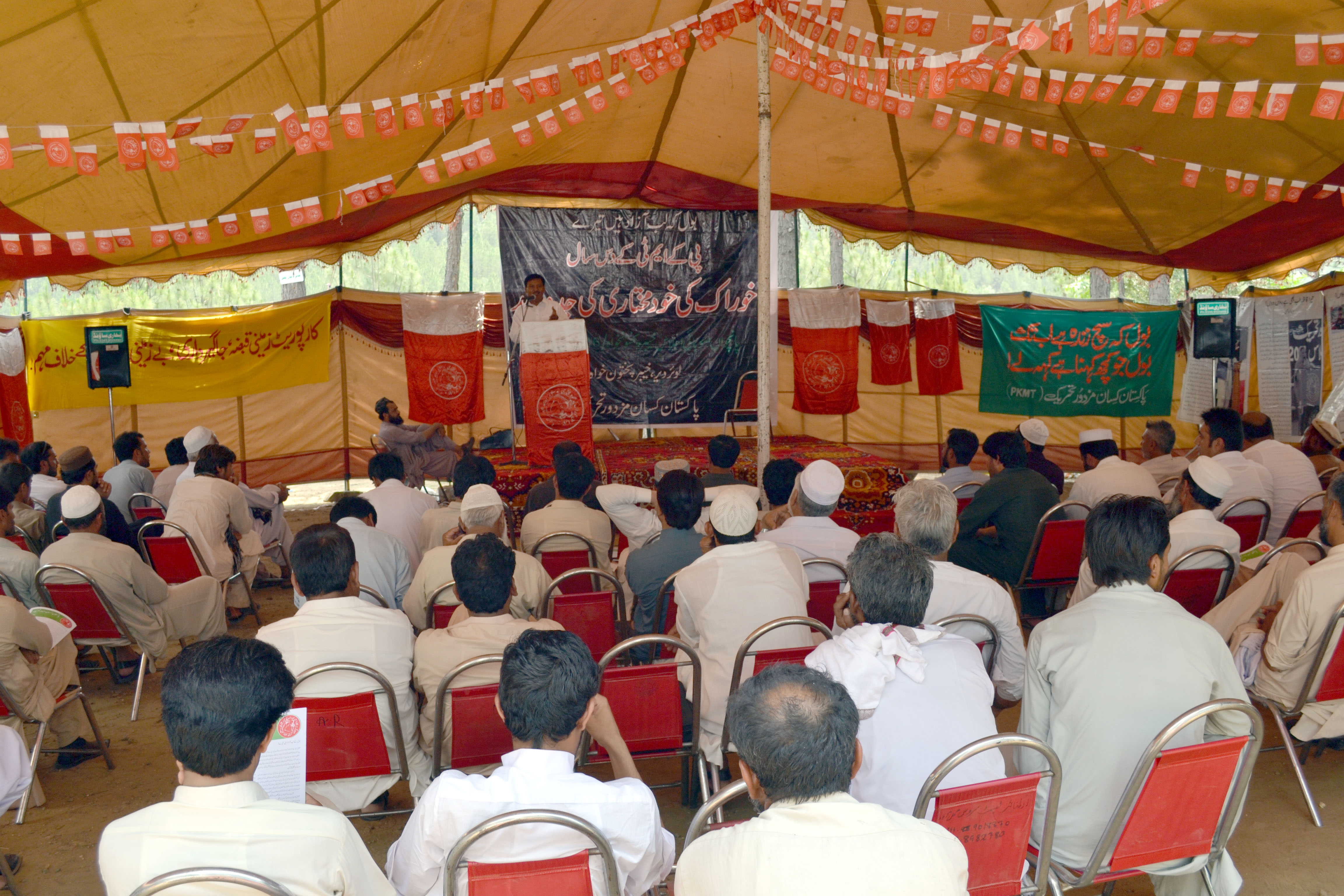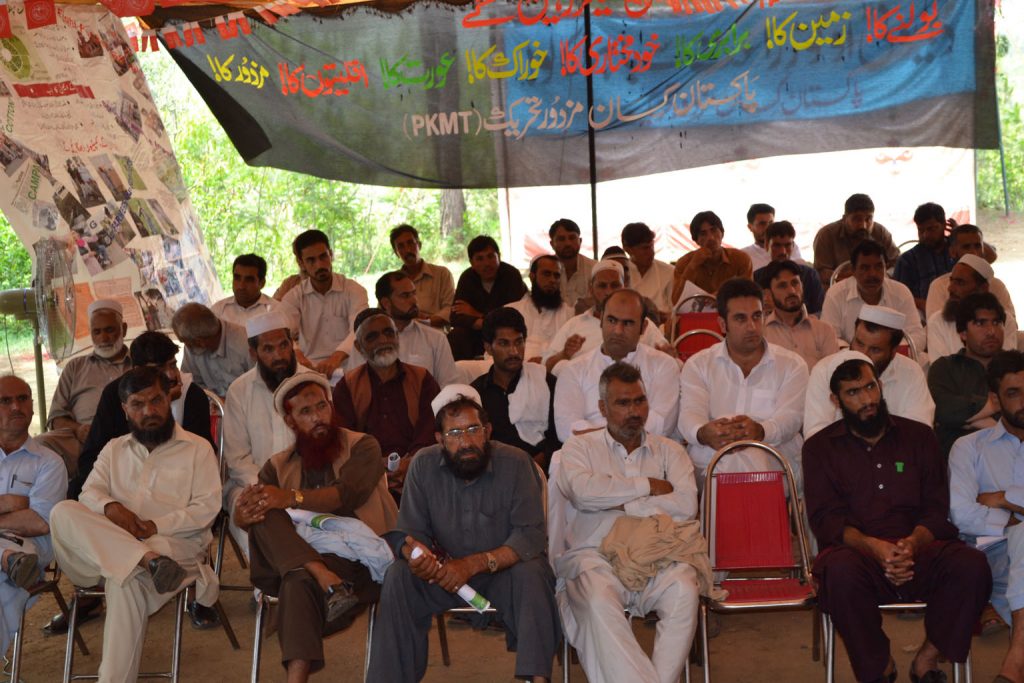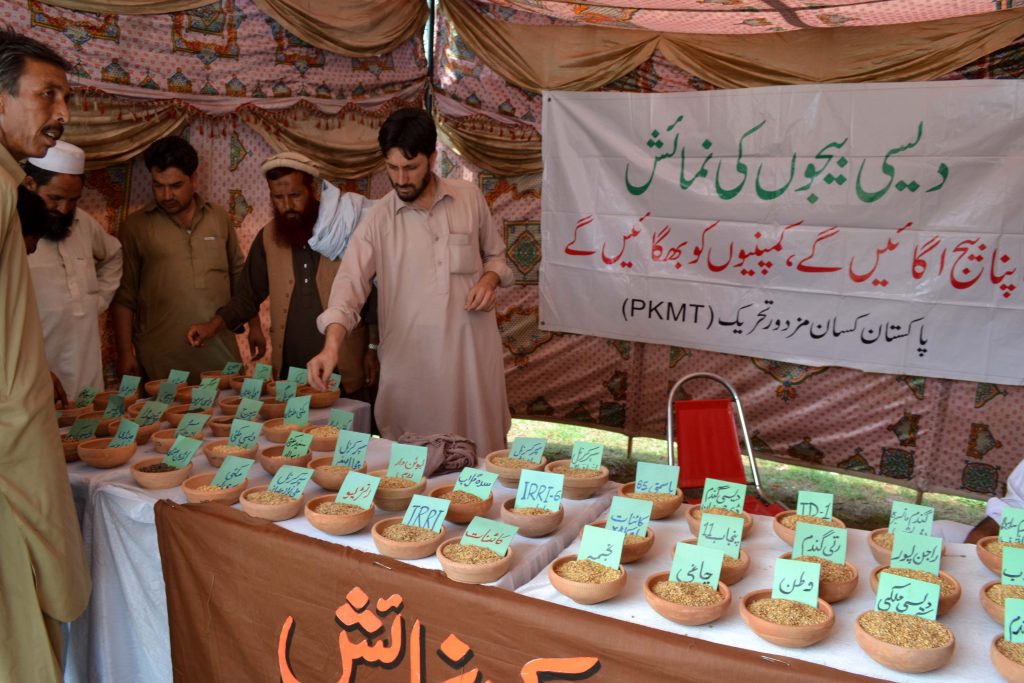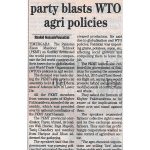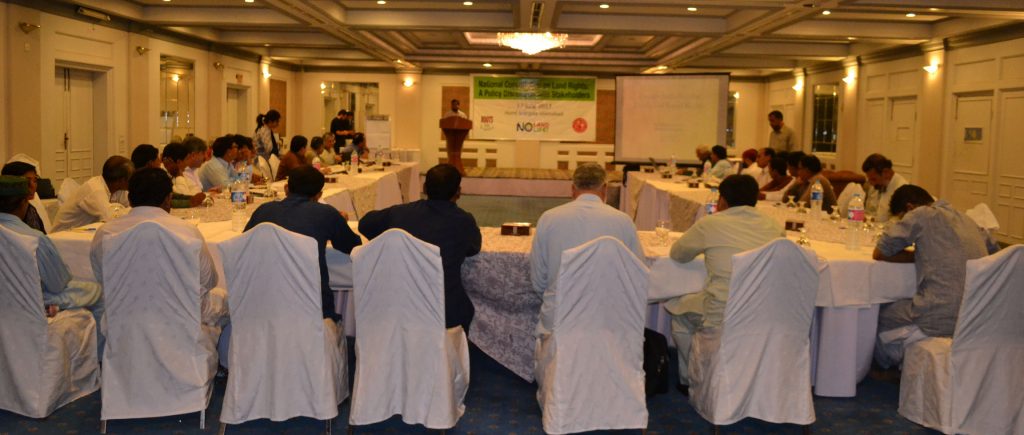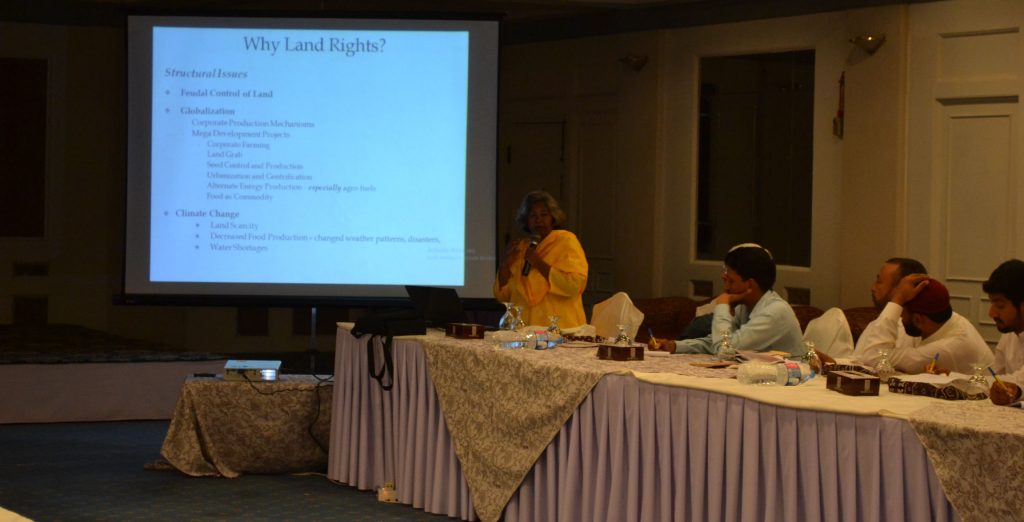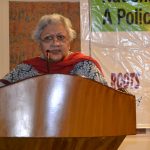Haneen Rafi
Dawn, July 24, 2017
KARACHI: “The rights of the peasant will benefit greatly only by creating widespread social awareness of land reforms which can be our greatest weapon. And this cannot be possible without including women in this struggle,” said PPP Senator Taj Haider at a seminar organised by the Awami Workers Party in Karachi on Sunday.
Highlighting the importance of empowering the farmer and peasant, Mr Haider criticised the fact that Pakistan remained one of the few countries that allowed a system to persist in which a few individuals sitting at home directly benefitted from the farmer toiling away on the fields.
The urgency of the land reforms needed in Pakistan have remained a constant demand of the AWP in a bid to battle the monopoly of feudal land owners that have for long usurped the rights of the peasants.
AWP peasant secretary Hassan Askari highlighted how land reforms in East Pakistan were more rigorously pushed through than in West Pakistan. “In East Pakistan land reforms were supported more because most of the land owners there were Hindus. In West Pakistan the land owners however, were not touched.”
“One of the most dynamic revolutionary forces is the kisan,” said AWP Sindh president Bakhshal Thallo, who explained how it was the British who organised and privatised the feudal system in South Asia.
Central secretary general Akhtar Hussain was of the opinion that to make land reforms, or for that matter any sort of reforms successful, the grassroots need to be galvanised and be invested enough to get the reforms implemented. If this is missing, then no amount of reforms will garner much change as there are many examples in Pakistan.
He also spoke about different legal developments the country has witnessed with regards to land reforms.
Prof Tauseef Ahmed Khan criticised how giving ownership of the land to the peasant was not a custom accepted by those in power. “It was for the first time after the revolution in 1917 in the Soviet Union that a state accepted that the land belongs to the peasant and eliminated the feudal system.”
He explained that it was when the communist party was established in the subcontinent that the idea that the peasant who works on a piece of land should own it too came to the fore. However, in his opinion the political parties led down this cause. Even in Pakistan this trend subsisted. “It was the Left politics that created a sense of awareness among the kisan about his rights. And till the farmer does not get his land, poverty will never end from this country.”
https://www.dawn.com/news/1347188/till-the-farmer-gets-his-land-poverty-will-not-end

